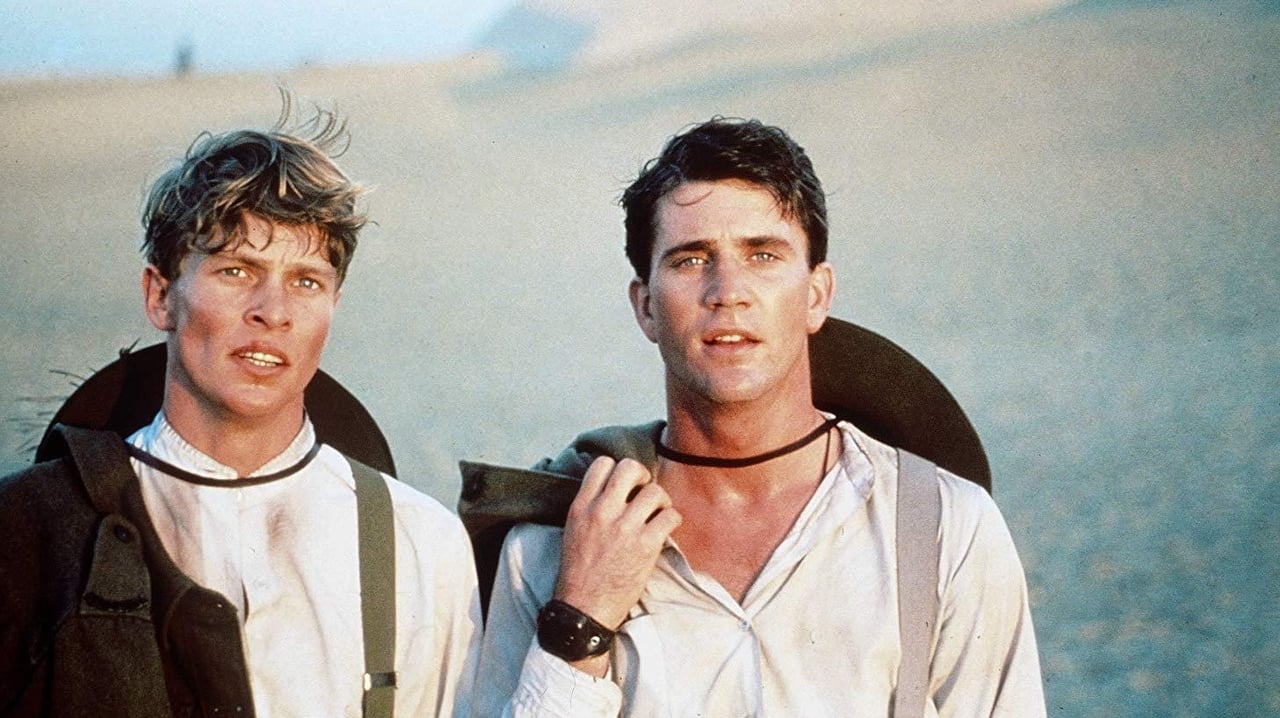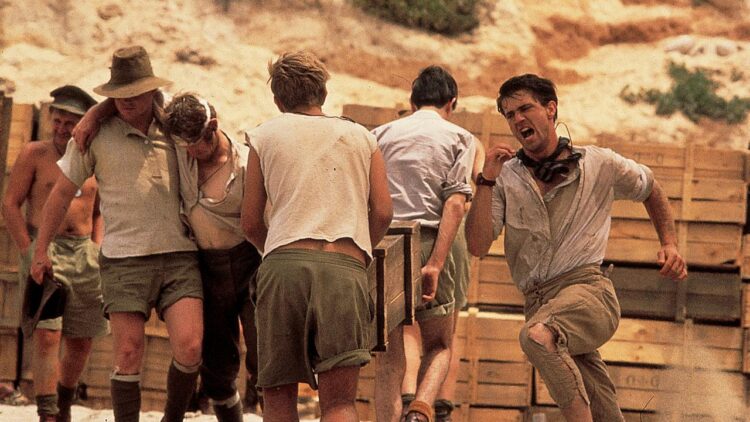Gallipoli, a cinematic gem directed by Peter Weir, unfolds with a narrative crafted by David Williamson, based on a story conceived by Weir himself. Peter Weir had wanted to make a film about the Gallipoli campaign since visiting Gallipoli in 1976. While walking on the sand he discovered an empty Eno bottle on the beach. This 1981 masterpiece stars Mel Gibson, Mark Lee, and Bill Kerr and boasts a runtime of a concise yet impactful 110 minutes. Gallipoli’ culminates in the Battle of the Nek on 7th of August 1915, one of the great catastrophes of the war campaign.
This movie is a powerful and emotionally charged war drama that delves into the heart-wrenching realities of World War I. Released in 1981, the film remains a timeless masterpiece that not only captures the historical significance of the Gallipoli campaign but also explores the profound impact of war on the lives of ordinary individuals. I still recall seeing it as a youth. The ending was moving, and I still recall it how it made me feel.
The movie unfolds against the backdrop of the ill-fated Gallipoli campaign during World War I. The film follows the journey of two young Australian sprinters, Archy Hamilton (Mark Lee) and Frank Dunne (Mel Gibson), who enlist in the Australian and New Zealand Army Corps (ANZAC) with dreams of glory and adventure. The narrative brilliantly balances the camaraderie and innocence of youth with the harshness of the war, creating a poignant tale of friendship and sacrifice.
One of the film’s strengths lies in its ability to humanize the characters, making the audience deeply connect with their aspirations, fears, and dreams. Mark Lee and Mel Gibson deliver standout performances, portraying the genuine camaraderie and the sense of duty that drives them to join the war effort. There is such depth and sincerity by Mel Gibson and Mark Lee, in playing the characters. Weir’s direction allows the characters to evolve organically, and the audience witnesses the gradual transformation of their youthful exuberance into the grim realities of the battlefield.
The cinematography by Russell Boyd is breathtaking, capturing the vast and unforgiving landscapes of the Australian Outback and the harsh battlefields of Gallipoli. The film’s visual beauty serves as a stark contrast to the brutality of war, creating a visceral experience that resonates long after the credits roll. This movie has many themes but it truly is about young men given an impossible task, and therefore about tragedy, a waste of human life and young potential.
The pacing of Gallipoli is deliberate, allowing the tension to build gradually. The deliberate pacing allows the tension to simmer, building towards a climax that leaves a lasting impact. The film’s brevity, coupled with its thematic depth, ensures that every scene serves a purpose, making for a compelling and emotionally resonant narrative. As the story unfolds, the film skillfully addresses the horrors of war, depicting the futile nature of the Gallipoli campaign and the devastating impact on the soldiers. A major theme of this film is loss of innocence and the coming of age of the Australian soldiers and of their country, as well as mateship and larrikinism. The final act is particularly poignant, delivering an emotional gut punch that leaves a lasting impression on the viewer.
The musical score, composed by Jean-Michel Jarre, further elevates the film, infusing it with haunting melodies that linger in the audience’s memory. These musical cues effectively underscore the emotional highs and lows of the characters, enhancing the overall viewing experience.
In summary, Gallipoli stands as a testament to the collaborative brilliance of its creators. Weir’s direction, Williamson’s screenplay, and the stellar performances by Gibson, Lee, and Kerr converge to create a timeless war drama. With its concise runtime, breathtaking cinematography, and evocative score, Gallipoli remains a poignant exploration of sacrifice, friendship, and the human cost of war. This cinematic classic continues to resonate with audiences, showcasing the enduring power of storytelling in the realm of war films. Guardian film critic, Luke Buckamster, describing it as “one of the best loved and most quintessially ‘Australian’ films”. I think it is one of the most extraordinary war films ever made.
*The views and opinions expressed on this website are solely those of the original authors and contributors. These views and opinions do not necessarily represent those of Spotter Up Magazine, the administrative staff, and/or any/all contributors to this site.

